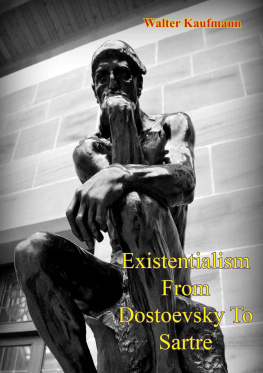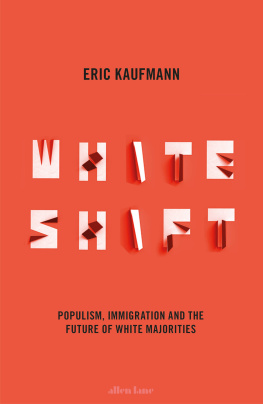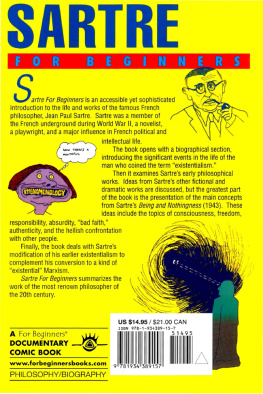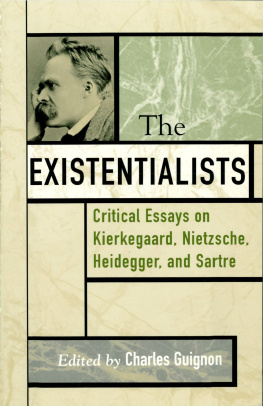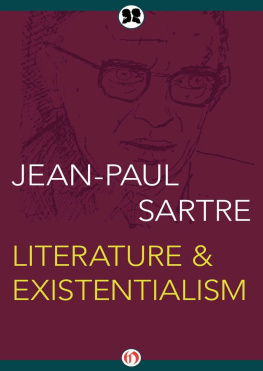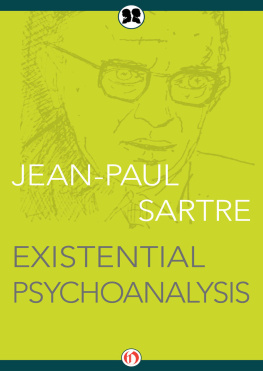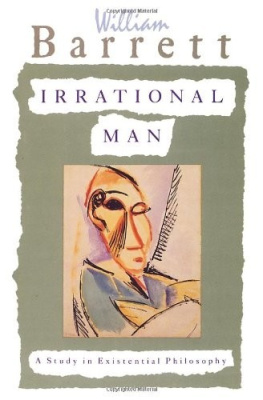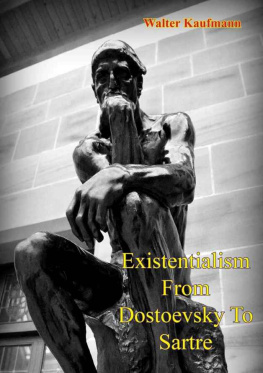

This edition is published by PICKLE PARTNERS PUBLISHINGwww.pp-publishing.com
To join our mailing list for new titles or for issues with our books picklepublishing@gmail.com
Or on Facebook
Text originally published in 1956 under the same title.
Pickle Partners Publishing 2016, all rights reserved. No part of this publication may be reproduced, stored in a retrieval system or transmitted by any means, electrical, mechanical or otherwise without the written permission of the copyright holder.
Publishers Note
Although in most cases we have retained the Authors original spelling and grammar to authentically reproduce the work of the Author and the original intent of such material, some additional notes and clarifications have been added for the modern readers benefit.
We have also made every effort to include all maps and illustrations of the original edition the limitations of formatting do not allow of including larger maps, we will upload as many of these maps as possible.
EXISTENTIALISM: FROM DOSTOEVSKY TO SARTRE
Edited, with an introduction, prefaces, and new translations
BY
WALTER KAUFMANN
The Basic Writings of Existentialism, many never before translated
TABLE OF CONTENTS
Contents
ABOUT THE AUTHOR
Walter Kaufmann
Born in Freiburg, Germany, Walter Kaufmann is a graduate of Williams College. He received his doctorate from Harvard University in 1947 and in the same year joined the staff of Princeton University, where he is now Associate Professor of Philosophy. A frequent contributor to scholarly periodicals, he is also editor of the Portable Nietzsche and author of Nietzsche .
PREFACE
Some anthologies treat great literature and philosophy as if they could be used to furnish a cultural supermarket where the reader shops around. Of course, it is the readers right to browse, to skip, and not to read, whether a volume is by a single author or by ten. What matters is that a book should offer, when read straight through, more than the sum of the parts. The present volume is intended to tell a story, and the growing variations of some major themes, the echoes, and the contrasts ought to add not only to the enjoyment but also to the readers understanding.
There are several new translations made especially for this book. Jaspers essay On My Philosophy has been translated by Felix Kaufmann, and I myself have translated the material from Nietzsche, Rilke, and Heidegger.
I am deeply indebted to Princeton University for a years leave of absence and to the Fulbright Commission for a research grant which enabled me, among other things, to listen to lectures by Jaspers and Heidegger and to talk with them and many of their colleagues and former students. To Heidegger I am also indebted for answering, orally and in writing, questions about his essay which is here offered in English for the first time.
My wife, Hazel Kaufmann, has given me invaluable aid and comfort.
W K.
ONE Kaufmann: Existentialism from Dostoevsky to Sartre
Existentialism is not a philosophy but a label for several widely different revolts against traditional philosophy. Most of the living existentialists have repudiated this label, and a bewildered outsider might well conclude that the only thing they have in common is a marked aversion for each other. To add to the confusion, many writers of the past have frequently been hailed as members of this movement, and it is extremely doubtful whether they would have appreciated the company to which they are consigned. In view of this, it might be argued that the label existentialism ought to be abandoned altogether.
Certainly, existentialism is not a school of thought nor reducible to any set of tenets. The three writers who appear invariably on every list of existentialistsJaspers, Heidegger, and Sartreare not in agreement on essentials. Such alleged precursors as Pascal and Kierkegaard differed from all three men by being dedicated Christians; and Pascal was a Catholic of sorts while Kierkegaard was a Protestants Protestant. If, as is often done, Nietzsche and Dostoevsky are included in the fold, we must make room for an impassioned anti-Christian and an even more fanatical Greek-Orthodox Russian imperialist. By the time we consider adding Rilke, Kafka, and Camus, it becomes plain that one essential feature shared by all these men is their perfervid individualism.
The refusal to belong to any school of thought, the repudiation of the adequacy of any body of beliefs whatever, and especially of systems, and a marked dissatisfaction with traditional philosophy as superficial, academic, and remote from lifethat is the heart of existentialism.
Existentialism is a timeless sensibility that can be discerned here and there in the past; but it is only in recent times that it has hardened into a sustained protest and preoccupation.
It may be best to begin with the story of existentialism before attempting further generalizations. An effort to tell this story with a positivists penchant for particulars and a relentless effort to suppress ones individuality would only show that existentialism is completely uncongenial to the writer. This is not meant to be a defense of arbitrariness. A personal perspective may suggest one way of ordering diffuse materials, and be fruitful, if only by way of leading others to considered dissent.
I. DOSTOEVSKY
In some of the earliest philosophers, such as Pythagoras and Heraclitus and Empedocles, we sense a striking unity of life and thought; and after the generation of the Sophists, Socrates is said to have brought philosophy down to earth again. In the Socratic schools and in Stoicism a little later, philosophy is above all a way of life. Throughout the history of philosophy other, more or less similar, examples come to mind, most notably Spinoza. It is easy, and it was long fashionable, to overestimate the beautiful serenity of men like these, and it is well to recall the vitriolic barbs of Heraclitus, the inimitable sarcasm of Socrates, and the passions of Spinoza. Even so, it is an altogether new voice that we hear in Dostoevskys Notes from Underground .
The pitch is new, the strained protest, the self-preoccupation. To note a lack of serenity would be ridiculous: poise does not even remain as a norm, not even as an element of contrast; it gives way to poses, masksthe drama of the mind that is sufficient to itself, yet conscious of its every weakness and determined to exploit it. What we perceive is an unheard-of song of songs on individuality: not classical, not Biblical, and not at all romantic. No, individuality is not retouched, idealized, or holy; it is wretched and revolting, and yet, for all its misery, the highest good.
The bias against science may remind us of romanticism; but the Notes from Underground are deeply unromantic. Nothing could be further from that softening of the contours which distinguished all romantics from the first attack on classicism to Novalis, Keats, and Wordsworth. Romanticism is flight from the present, whether into the past, the future, or another world, dreams, or, most often, a vague fog. It is self-deception. Romanticism yearns for deliverance from the cross of the Here and Now: it is willing to face anything but the facts.
The atmosphere of Dostoevskys Notes is not one of soft voices and dim lights: the voice could not be shriller, the light not more glaring. No prize, however great, can justify an ounce of self-deception or a small departure from the ugly facts. And yet this is not literary naturalism with its infatuation with material circumstances: it is mans inner life, his moods, anxieties, and his decisions, that are moved into the center until, as it were, no scenery at all remains. This book, published in 1864, is one of the most revolutionary and original works of world literature.
Next page
